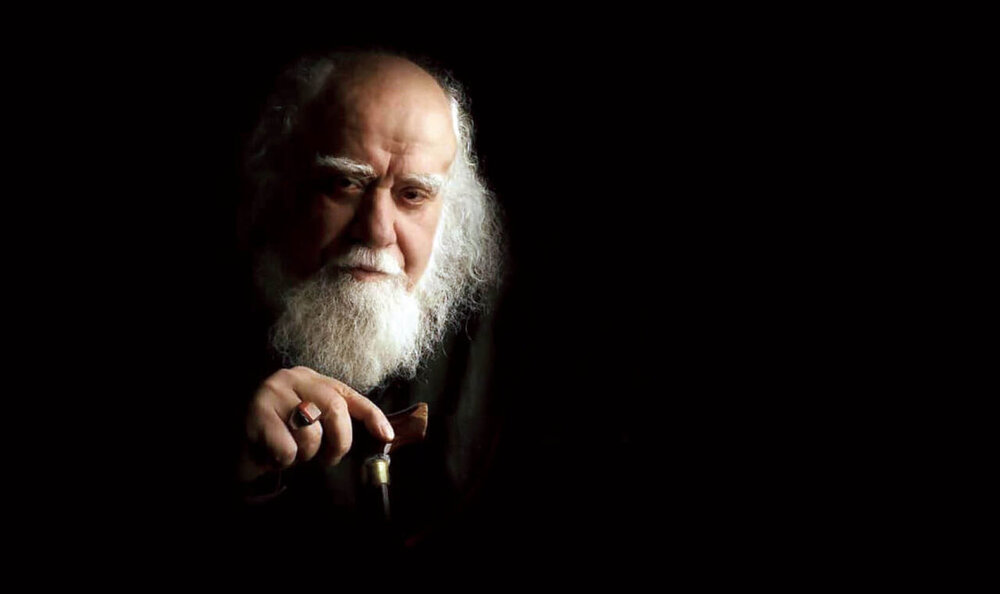Top Islamic philosopher Mohammadreza Hakimi dies at 86

TEHRAN – Mohammadreza Hakimi, a top Islamic philosopher who was most famous for his studies on social justice and individual freedom in Islam, died of heart failure at a Tehran hospital on Sunday night. He was 86.
A few weeks ago, he was admitted to the hospital to receive treatment for fatigue caused by COVID-19, Morteza Kia, one of his students, told the Persian service of ISNA.
“The virus had also affected his kidneys so that he was hospitalized over the past few days and finally, he died of cardiac failure,” he added.
Hakimi’s family confirmed his death in a statement calling him “the guardian of monotheism, justice philosopher, and the supporter of the deprived and helpless people.”
In another statement published on his Instagram account, his family also wrote, “He wanted to be the horizon to slake the thirsty desert of the onlookers and nourish the hopes of the desperate.”
Many cultural and political figures, including Culture Minister Seyyed Abbas Salehi and the Leader of the Islamic Revolution, Ayatollah Seyyed Ali Khamenei, have offered condolences over the death of Hakimi.
“I sadly received the news of the death of the learned man and great thinker, His Excellency Mr. Mohammadreza Hakimi, may God sanctify his soul,” Ayatollah Khamenei wrote in his message of condolences published on Monday.
He called Hakimi “a great philosopher, skilled litterateur, innovative thinker and a pro-justice Islamologist,” and added, “I offer my sincere condolences over the tragic death of this long-standing friend to his honorable family and relatives, especially his great brother, and friends and fans; may God bless his soul.”
Hakimi was born into a religious family in Mashhad, a major Iranian city, which is revered by Shia Muslims as it houses the holy shrine of Imam Reza (AS), the eighth Imam of the Shia.
His father, Abdolvahab, was respected by top businessmen in the bazaar for his honesty. Hakimi began his education in 1941. He was admitted to the Khorasan Islamic seminary six years later, spending 20 years learning Islamic sciences from top clerics such as Seyyed Abolhassan Hafezi and Sheikh Mojtaba Qazvini.
In 1969, Grand Ayatollah Sheikh Mohammed-Mohsen Razi popularly known as Aqa Bozorge Tehrani qualified him to exercise ijtihad, however, he never wore the common Muslim clerics’ attire.
He wrote over 100 books and articles on Islamic issues. “Al-Hayat” (“The Life”) is one of his greatest books written in Arabic in twelve volumes dating from 1974 to 2015.
This book is actually an encyclopedia of Islamic sciences, which holds a lofty place in the Islamic world.
This book, which received contributions from some other Islamic scholars, provides a deep insight into the image of Islam and Shiism. The book centers on Hakimi’s views on social justice and individual freedom derived from the Holy Quran and hadiths.
Ahmad Aram has translated six volumes of the collection into Persian.
“Minus Poverty” is another book written by Hakimi, which discusses his pro-justice views of economic issues in Islam.
“Based on a hadith from Imam Sadeq (AS), if one person, just one person, lives in poverty and scarcity in a society, even if in a remote village, the society cannot be considered as an Islamic one,” Hakimi had once said.
Among his credits are also “The Sun of the Occident”, “Sun Interpretation”, “The Red Wisdom” and “The Cry of Days”.
Hakimi is scheduled to be buried in the holy shrine of Imam Reza (AS) on Tuesday.
Photo: Islamic philosopher Mohammadreza Hakimi in an undated photo.
MMS/YAW
